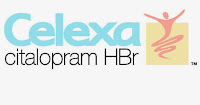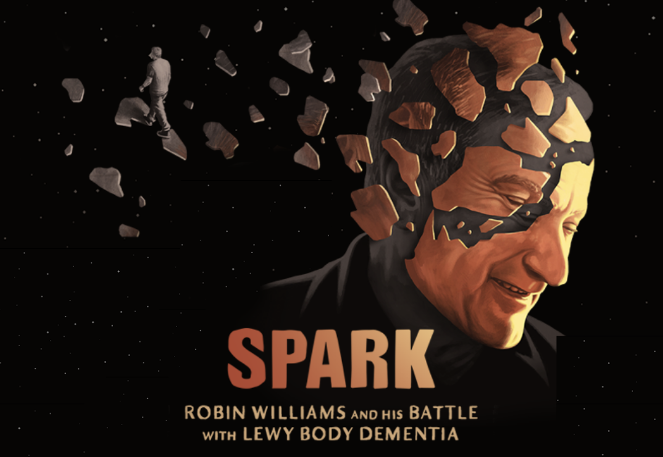The antidepressant drug citalopram, sold under the brand names Celexa and Cipramil and also available as a generic medication, significantly relieved agitation in a group of patients with Alzheimer’s disease.
Dementia Books & Videos on Amazon:
FREE Newsletter:
In lower doses than those tested, the drug might be safer than antipsychotic drugs currently used to treat the condition, according to results of a clinical trial led by Johns Hopkins researchers that included seven other academic medical centers in the United States and Canada.
For the study, reported in the Journal of the American Medical Association, Constantine Lyketsos, M.D., M.H.S., and his colleagues recruited 186 patients with Alzheimer’s who showed a collection of symptoms including emotional distress, excessive movement, aggression, disruptive irritability and disinhibition. None experienced adequate symptom relief with non-medical therapies, and some experienced failed treatment with antipsychotic drugs. Though antipsychotics are often used as first-line medications for Alzheimer’s-related agitation, they significantly increase the risk of strokes, heart attacks and death, Lyketsos says.
At the start of the study, patients also underwent tests to define the extent of their agitation, memory and other cognitive skills, and their caregivers’ stress levels, a factor strongly linked to the well-being of those with Alzheimer’s. The patients were then separated into two groups. For the next nine weeks, about half took increasing doses of citalopram that peaked at 30 milligrams per day, and the rest took an identical-looking placebo.
At the end of the study period, the same set of tests was given, along with electrocardiograms. The study drug is linked to adverse effects on heart function, including irregular heartbeat, a harbinger of a heart attack.
Results showed that patients on the drug had significant relief from their agitation symptoms, Lyketsos says. In one measure of agitation, about 40 percent of patients who took citalopram had “considerable relief,” compared to 26 percent of patients who took the placebo. The caregivers for these patients reported less stress.
However, patients on the drug were also more likely to have slightly decreased cognitive function. “It was not huge, but measureable,” says Lyketsos, director of the Johns Hopkins Memory and Alzheimer’s Treatment Center and director of the Department of Psychiatry at Johns Hopkins Bayview Medical Center. “That introduces a tradeoff.”
More concerning, he adds, is that patients on citalopram had longer QTc intervals, a measure of abnormal heart function that increases the risk of heart attacks. However, Lyketsos says, antipsychotic medications also used to treat agitation increase heart attack risk as well, perhaps even more substantially.
Lyketsos and his colleagues hope to test if a lower dose of citalopram might be just as effective in treating Alzheimer’s-related agitation with less risk for cognition and heart function. In the meantime, he says, the drug offers an alternative to antipsychotics.
“If the agitation is not responding to non-medication treatments and your patient’s agitation isn’t improving, there are no great options,” Lyketsos says. “But here’s another medication choice that might be safer than other medications and seems to be just as effective.”
Source:
Journal Reference:
- Anton P. Porsteinsson, Lea T. Drye, Bruce G. Pollock, D. P. Devanand, Constantine Frangakis, Zahinoor Ismail, Christopher Marano, Curtis L. Meinert, Jacobo E. Mintzer, Cynthia A. Munro, Gregory Pelton, Peter V. Rabins, Paul B. Rosenberg, Lon S. Schneider, David M. Shade, Daniel Weintraub, Jerome Yesavage, Constantine G. Lyketsos. Effect of Citalopram on Agitation in Alzheimer Disease. JAMA, 2014; 311 (7): 682 DOI: 10.1001/jama.2014.93
More Information:
This research was supported by grants from the National Institutes of Health’s National Institute on Aging and National Institute of Mental Health (R01AG031348 and P50AG05142).
In addition to Lyketsos, other Johns Hopkins researchers involved in this study include Lea T. Drye, Ph.D.; Constantine Frangakis, Ph.D.; Christopher Marano, M.D.; Curtis L. Meinert, Ph.D.; Cynthia A. Munro, Ph.D.; Peter V. Rabins, M.D.; Paul B. Rosenberg, M.D.; and David M. Shade, J.D.
Along with Johns Hopkins, the other medical centers involved in the clinical trial include Columbia University, the Medical University of South Carolina, Stanford University, the University of Pennsylvania, the University of Rochester, the University of Southern California and the University of Toronto.
For more information:
Johns Hopkins Medicine (JHM), headquartered in Baltimore, Maryland, is a $6.7 billion integrated global health enterprise and one of the leading health care systems in the United States. JHM unites physicians and scientists of the Johns Hopkins University School of Medicine with the organizations, health professionals and facilities of The Johns Hopkins Hospital and Health System. JHM’s vision, “Together, we will deliver the promise of medicine,” is supported by its mission to improve the health of the community and the world by setting the standard of excellence in medical education, research and clinical care. Diverse and inclusive, JHM educates medical students, scientists, health care professionals and the public; conducts biomedical research; and provides patient-centered medicine to prevent, diagnose and treat human illness. JHM operates six academic and community hospitals, four suburban health care and surgery centers, and more than 30 primary health care outpatient sites. The Johns Hopkins Hospital, opened in 1889, was ranked number one in the nation for 21 years in a row by U.S. News & World Report.












It is a tough decision:
Maybe can relief or not relief agitation , but as we read above , for sure can hastens the cognitive impairments of AD and others age-related dementias (as vascular dementias ,etc) , and as we can read above too , the drug can increase the chances of heart arrhythmias associated with severe low blood pressure, mainly when the patient is taking acetylcholinesterase inhibitors such as Aricept, rivastigmine ,etc. , once heart arrythmias and severe low blood pressure are common side effects of acetylcholinesterase inhibitors too .